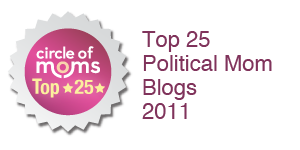An alien visiting the US would likely conclude that women in general and mothers in particular are of little importance. Who runs for public office and interprets the law in the courts? Mostly men. Who enforces the law? Mostly men. Who controls the banks, sits on the boards, and makes business decisions? Mostly men. Who runs the military? Mostly men. Who makes what the military needs? Mostly men. Who serves in the military? Mostly men.
Men are paid more at work. Men’s benefits are bigger in retirement. Men save more money, and have bigger pensions. Most of our public places named for people are named for men. Our airports and public buildings are named for (mostly) men. There are more statues of men. More stamps of men. Men fill our history books, their art fills our museums, and their music our concert halls. Our economic measures, like GDP, track monetized activity, mostly done by men. Our standard of living, largely influenced by the extent of disposable income, is heavily determined by men. The degree to which life is enhanced by women’s caring, raising, rearing, comforting, bathing, bandaging, cooking, driving, checking, feeding, dressing, volunteering and nurturing is not even accounted for; it remains entirely invisible. What’s regarded, elevated, honored and valued is all the work of men. Men, men, men, men, men.
It’s no wonder that the list of national priorities reflected in the recent presidential debates didn’t include so many aspects of public policy critical to women and familes. Women’s leadership, influence, and voices simply aren’t strong enough to demand attention. Women’s money does not support election campaigns. We only seem to elbow our way into the conversation if the topic is rape - legitimate rape, rape as an exception to an abortion ban, rape by the required transvaginal ultrasound before we can exercise our legal right to abortion, pregnancy from rape as God’s gift. Only in our violation are we mentioned. How positively sick.
In spite of all the hoo-ha about American exceptionalism, by some measures the US is not doing very well at all. Out of 135 nations around the world, representing 90% of the global population, our gender gap ranking is 22 in the World Economic Forum’s “Global Gender Gap Index 2012″. In other words, women are closer to men’s status in 21 other countries. The analysis looks at many factors, like political representation, economic power, educational attainment, wage equality, and health and survival. It’s surprising that women are better off in some countries with much smaller and weaker economies.
The top ten contain the usual standouts - Iceland, Finland, Norway, Sweden, and much of western Europe - countries that guarantee paid maternity leave, have much higher percentages of women in elective office and access to public health systems. The UK sits at spot #18. Astoundingly, the Philippines, Nicaragua, Lesotho, South Africa and Cuba rank higher than the US, all of them comfortably lodged in the top 20.
The only category in which the US holds the top spot is educational attainment. Women have earned more high school diplomas, undergraduate and graduate degrees than men have for several years now. It’s a fact, women are better educated than men in the US. Apparently that is not enough to improve the percentage of women who are CEO’s, now at a measly 3%. In terms of political empowerment alone, the US ranks #55. Our outrageously high maternal mortality rates (death from pregnancy or a pregnancy-related condition) contributes to our ranking in the health and survival category, at # 33. Even more horrifying is the trending decline in this country. In 2010, we ranked 19. In 2011, we improved to 17. Since then, we’ve fallen to 22.
Will this downward trend continue? How have other countries closed their gender gap? By making sure women overcome institutional gender discrimination and move into leadership positions, either by legislating quotas or by voluntary actions. Also necessary, implementing childcare and taxation policies that promote shared parenting and the ability to work outside the home. These have been essential moves, and women around the world have benefited from them. Without the push they provide, you end up with ….. the status of women in the US. More educated, but still poorer, sicker, disenfranchised, unrepresented, marginalized, diminished, demeaned and devalued. And likely to remain so. No matter how many diplomas we earn.
You can read more about the Global Gender Gap Index in this Forbes article, and look at the report itself.
‘Til next time,
Your (Wo)Man in Washington




Follow Us!